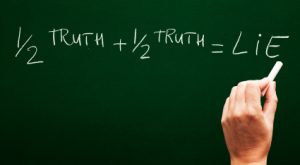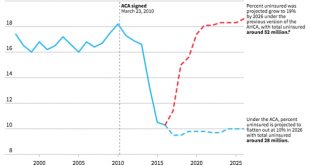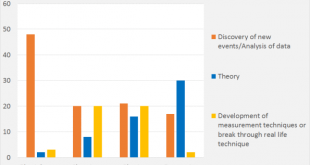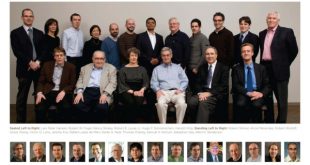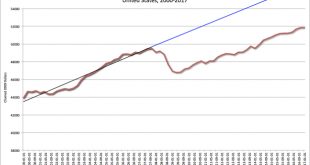from Lars Syll In a blog post the other day, Noah Smith returned again to the discussion about the ’empirical revolution’ in economics and how to — if it really does exist — evaluate it. Counter those who think quasi-experiments and RCTs are the true solutions to finding causal parameters, Noah argues that without structural models empirical results are only locally valid. And you don’t really know how local “local” is. If you find that raising the minimum wage from $10 to $12 doesn’t...
Read More »Models and measurement in economics: Wesley Mitchell in 1946
Noah Smith is not the first one to be puzzled by the rift between theory and measurement in economics. He states: “econ seems too focused on “theory vs. evidence” instead of using the two in conjunction. And when they do get used in conjunction, it’s often in a tacked-on, pro-forma sort of way, without a real meaningful interplay between the two. Of course, this is just my own limited experience, and there are whole fields – industrial organization, environmental economics, trade – that I...
Read More »Where’s the productivity growth? The Bureau of Labor Statistics can’t find the robots!
from Dean Baker Source: Bureau of Labor Statistics. We hear endless stories in the media about how the robots are taking all the jobs. There was a new rush of such stories after the release of a study by Daron Acemoglu and Pascual Restrepo, which found that robots were responsible for a substantial share of the job loss in manufacturing in the last decade. (For example, this Bloomberg piece by Mira Rojanasakul and Peter Coy.) However, there remains a very basic problem in the robot...
Read More »Curb your enthusiasm: Macron is just the beginning of a new fight for France and Europe
from Mark Weisbrot The media response to the French election reads like some people had too much cannabis. From the first paragraph of a front page news analysis of the New York Times: “It was globalization against nationalism. It was the future versus the past. Open versus closed.” Let’s not get carried away. It’s great that Marine Le Pen, whose National Front party with deep racist roots that go back to French collaborators during the Nazi occupation, as well as French colonialism, was...
Read More »Crimes against humanity
from David Ruccio As regular readers of this blog know, I am no fan of the way healthcare is currently organized in the United States. The U.S. healthcare system, as it is currently configured, only really works for those who make a profit—selling health insurance, pharmaceuticals, and in-patient and acute-care services in hospitals—and those who have the wherewithal to finance their own healthcare. But Republican plans to repeal the Affordable Care Act, aka Obamacare, and replace it with...
Read More »Is there a mismatch between theory and measurement in economics?
The ‘The Sveriges Riksbank Prize in Economic Sciences in Memory of Alfred Nobel’ has much more often than the prizes for physics, Chemistry and physiology and medicine been awarded for: theory. It was on a regular basis awarded for analysis of data or the discovery of new events but in these cases ‘discovery’ was contrary to the other sciences much less important than analysis. It was only rarely awarded for the development of measurement techniques. I’m preparing what might become a...
Read More »What happens when a small and dangerous sect captures the teaching of economics
from Lars Syll The fallacy of composition basically consists of the false belief that the whole is nothing but the sum of its parts. In the society and in the economy this is arguably not the case. An adequate analysis of society and economy a fortiori can’t proceed by just adding up the acts and decisions of individuals. The whole is more than a sum of parts. This fact shows up when orthodox/mainstream/neoclassical economics tries to argue for the existence of The Law of Demand – when...
Read More »Bundesbank corrects textbook mistakes on money creation, rejects 100%-money
from Norbert Häring In the April-edition of their monthly report, the Bundesbank has belatedly joined the Bank of England in explicitly stating that the treatment of banks and money creation in most textbooks is wrong: banks are not intermediaries; they create money ex-nihilo. This helps the Bundesbank to reject criticism that central banks are currently “printing” too much money. At the same time, the Bundesbank rejects the proposal of 100%-money, i.e. bank deposits fully backed by...
Read More »Limits
from Peter Radford I don’t understand why people get upset when I say that economics is a waste of time. I suppose it’s because I don’t make a clear enough difference between economics as a general topic and economics as a formal, mainstream, body of knowledge. It’s the latter that is a waste of time. The former is wonderfully interesting. At its heart economics is a study of human behavior, where that behavior is specific to certain activities. It is thus deeply rooted in psychology, so...
Read More »End of Second Great Depression
from David Ruccio I am quite willing to admit that, based on last Friday’s job report, the Second Great Depression is now over. As regular readers know, I have been using the analogy to the Great Depression of the 1930s to characterize the situation in the United States since late 2007. Then as now, it was not a recession but, instead, a depression. As I explain to my students in A Tale of Two Depressions, the National Bureau of Economic Research doesn’t have any official criteria for...
Read More » Real-World Economics Review
Real-World Economics Review

